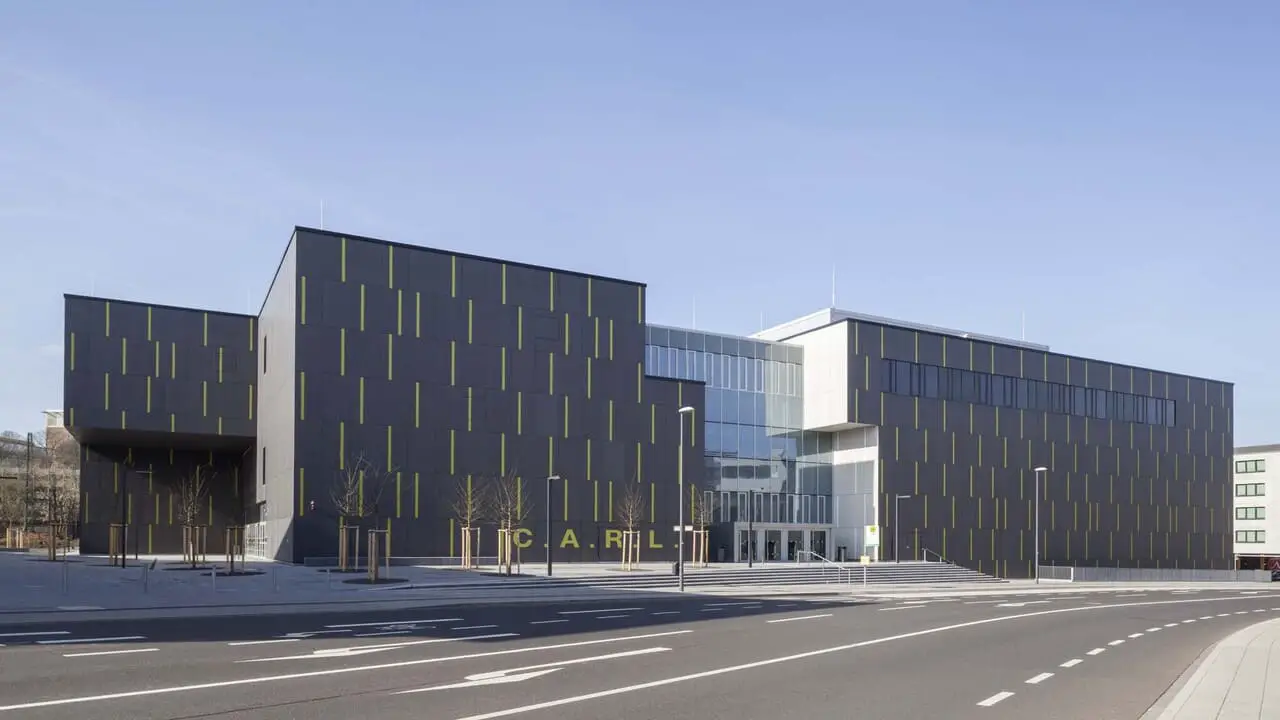Urban architecture plays a crucial role in shaping the design and development of cities, towns, and other urban areas. It involves the creation of buildings, structures, and public spaces that are functional, aesthetically pleasing, and sustainable. As cities continue to grow and evolve, there is a growing need for skilled professionals who can design and plan urban spaces that meet the needs of the people who live and work in them.
If you’re interested in pursuing a career in urban architecture, choosing the right college is a critical first step. There are many factors to consider, including the location of the college, the faculty, the curriculum, the facilities, and the cost. With so many options available, it can be challenging to know where to start.
In this article, we’ll provide a comprehensive guide to exploring the best urban architecture colleges in Canada. We’ll discuss the top colleges in the country, describe their programs in detail, and provide insights into what makes each college unique.
Factors to Consider When Choosing an Urban Architecture College
Choosing the right college for studying urban architecture is a significant decision that can impact your career prospects and your overall college experience. Here are some of the critical factors to consider when making your decision:
- Location: The location of the college is an essential factor to consider. You should think about whether you prefer a college in a big city, a smaller town, or a more rural area. Some colleges are located in areas with a high concentration of architecture firms, which can provide valuable networking and internship opportunities.
- Faculty: The faculty members at the college should be experienced professionals who are actively engaged in the field of urban architecture. You should research the faculty members and their areas of expertise to see if they align with your interests and career goals.
- Curriculum: The curriculum should be comprehensive and up-to-date, covering the latest trends and technologies in urban architecture. You should also consider whether the college offers any specializations or concentrations that align with your interests.
- Facilities: The facilities at the college should be state-of-the-art, providing access to the latest technologies and equipment. You should also consider whether the college has dedicated studio space for architecture students and whether the facilities are well-maintained and accessible.
- Cost: The cost of attending college is an essential factor to consider, including tuition, fees, and living expenses. You should research the cost of attendance and any available financial aid options to ensure that you can afford to attend college.
When considering these factors, it’s important to remember that there is no one “right” college for everyone. Each student has different needs and preferences, and what works for one person may not work for another. It’s important to do your research, visit colleges, and talk to current students and faculty members to get a sense of whether a particular college is a right fit for you.
Urban Architecture Colleges in Canada

1. University of Toronto
The University of Toronto’s John H. Daniels Faculty of Architecture, Landscape, and Design is one of the top-ranked architecture schools in Canada, offering a range of undergraduate and graduate programs in architecture, landscape architecture, and urban design. The faculty is renowned for its emphasis on design innovation and sustainability, and its commitment to interdisciplinary collaboration and research.
The school’s state-of-the-art building, which opened in 2017, includes design studios, fabrication labs, and exhibition spaces, providing students with access to cutting-edge technology and equipment. Notable alumni include the architect Douglas Cardinal and the urban designer Alex Mustonen.
2. University of British Columbia
The University of British Columbia’s School of Architecture and Landscape Architecture is a world-renowned institution that offers a range of undergraduate and graduate programs in architecture, landscape architecture, and urban design. The school is known for its strong focus on research and innovation, with an emphasis on sustainable design and community engagement.
The school’s ultramodern building, the School of Architecture and Landscape Architecture Building (SALA) is a model of sustainable design, featuring a green roof, solar panels, and rainwater harvesting systems. The building also includes cutting-edge technology and equipment, such as a robotic arm and a 3D printing lab. Notable alumni include the architect Bing Thom and the landscape architect Cornelia Hahn Oberlander.
3. Carleton University
The Azrieli School of Architecture and Urbanism at Carleton University is a premier institution that offers a diverse range of undergraduate and graduate programs in architecture, urbanism, and design. The school has a strong focus on research and innovation, with a faculty of renowned scholars and practitioners who are engaged in cutting-edge projects and collaborations.
The school’s facilities, including the Azrieli Pavilion, provide students with access to state-of-the-art equipment and technology, as well as a vibrant community of peers and mentors. The school also offers a range of international exchange programs and internship opportunities, allowing students to gain valuable experience in different cultural contexts. Notable alumni include the architect David Jaclin and the urban designer Ken Greenberg.
4. University of Calgary
The School of Architecture, Planning, and Landscape at the University of Calgary is an exceptional institution that offers a range of undergraduate and graduate programs in architecture, planning, and landscape architecture. The school is committed to promoting innovation and excellence in design education, with a focus on interdisciplinary collaboration and community engagement.
The school’s state-of-the-art building, the Professional Faculties Building, also features cutting-edge facilities such as design studios, fabrication labs, and digital technology labs. The school also offers a range of programs for international study and internship, that helps students gain real-life experience in diverse cultural and professional contexts. Notable alumni include the architect Peter Busby and the urban planner Ellen Dunham-Jones.
5. University of Waterloo
The University of Waterloo’s School of Architecture is a leading institution that offers undergraduate and graduate programs in architecture, urban design, and heritage conservation. The school takes an interdisciplinary approach to design education, emphasizing the integration of design, technology, and social responsibility.
The school’s futuristic building, the Cambridge Architecture Building, is a LEED Gold-certified facility that includes design studios, fabrication labs, and exhibition spaces, helping students get hands-on experience with the industry’s latest technology and equipment.
Through the school’s international exchange programs and internships, students have the chance to study and work in different parts of the world, gaining invaluable skills and knowledge. The university has a strong alumni network, which includes many renowned professionals in the field of urban architecture. Notable graduates include the architect Michael Green and the landscape architect Claude Cormier.
Career Opportunities in Urban Architecture
Urban architecture is a rapidly growing field with a wide range of career opportunities. Graduates of urban architecture programs can find work in a variety of fields, including architecture firms, engineering firms, construction companies, government agencies, and non-profit organizations.
One of the most common career paths for urban architecture graduates is to become a licensed architect. Architects design buildings and structures, considering factors such as aesthetics, functionality, and safety. They work closely with clients to understand their needs and preferences and collaborate with other professionals, such as engineers and contractors, to bring their designs to life.
In Canada, architects must be licensed by the relevant provincial or territorial regulatory body, which typically requires the completion of a degree program in architecture, practical experience, and successful completion of a professional examination.
Another career option for urban architecture graduates is to become an urban planner. Urban planners work with governments, community organizations, and private businesses to develop plans for land use, transportation, and community development.
They take into account social, economic, and environmental factors, as well as community input, to create plans that balance competing interests and meet the needs of the community. Urban planners typically have a degree in urban planning or a related field and may be required to be licensed or certified by a professional organization.
Other career opportunities for urban architecture graduates include construction project manager, sustainable design consultant, landscape architect, and interior designer. With their interdisciplinary education and skills in design, problem-solving, and project management, urban architecture graduates are well-equipped to tackle the complex challenges of designing and building the cities of the future.
The job outlook for urban architecture professionals is strong, with the Canadian government forecasting steady growth in the industry over the next decade. Salaries vary depending on the specific job and location, but the median annual salary for architects in Canada is around $80,000. With its high demand and diverse range of opportunities, a degree in urban architecture can be a great choice for those interested in a rewarding and fulfilling career.
Conclusion
When it comes to choosing a college, it’s important to consider various factors such as location, cost, academic programs, and student life. You should also think about what you want to achieve with your college education and what kind of environment you feel most comfortable in.
While the colleges mentioned here have their unique strengths and advantages, ultimately the best college for you will depend on your individual needs and preferences. Take the time to research and visit different campuses, talk to current students and faculty, and weigh the pros and cons of each option before making your decision.
Additional Posts:
- Exploring the Best Colleges in Canada for Genetic Biology
- The Best Colleges in Canada for MBA Programs
- Colleges in Canada for Americans: Everything You Need to Know About
- Colleges in Canada for International Students: Tips and Resources
- Best MBA Colleges in Paris: Top Business Schools in the City of Lights

